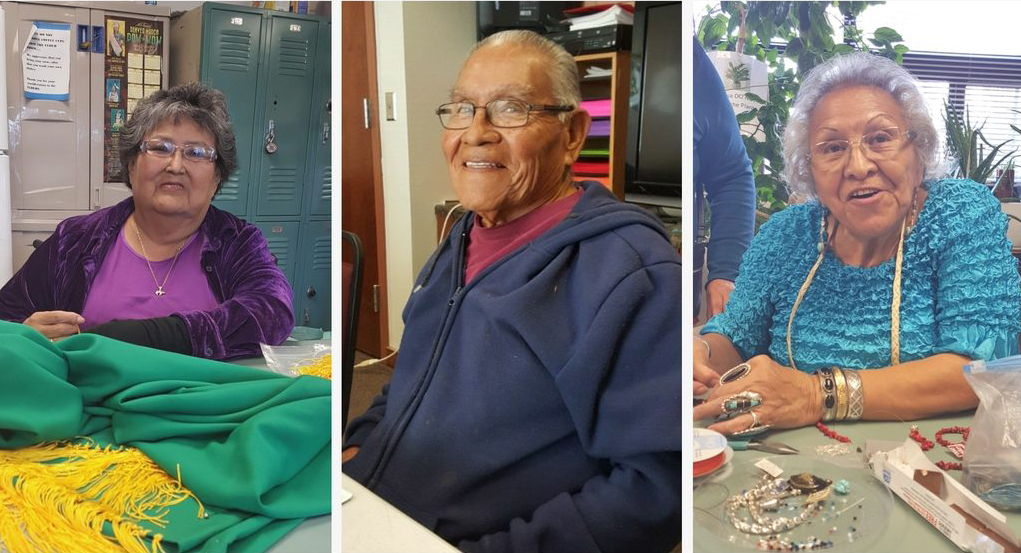This post originally appeared on the NICOA blog.
One aspect of healthy aging that may be overlooked is social health. Although the importance of friends and family to our health is well understood by American Indians and Alaska Natives (AI/ANs), in today’s culture many Elders are separated from their communities and therefore from some of this tradition. These connections with our families and friends are incredibly important to our health and wellbeing as Elders.

NICOA SCSEP participants. Photo courtesy of NICOA.
As the Center for Advancing Health states, “Staying connected to other people through a wide variety of social activities can yield important health consequences as you age… a new study that found that older adults who maintain high levels of social activity or ramp up their social life as they age might be protected from increases in physical and cognitive issues over time.”
Addressing Social Health through SCSEP
In 1989, the National Indian Council on Aging (NICOA) was awarded reserved funding specifically to provide Older Americans Act Title V services to AI/AN Elders. Since that time, NICOA has continuously been awarded reserved funding to serve as a national Senior Community Service Employment Program (SCSEP) set-aside grantee, assisting AI/AN Elders across the country. SCSEP is the only federal community service and job training program focused exclusively on serving low-income older adults 55 and older, in nearly all 3,000 U.S. counties and territories through state and national grantees.
Through SCSEP, NICOA has been able to address social health issues for our Elders. Not only does SCSEP provide a way for Elders to develop their skills and find meaningful employment, but it can also help them increase their social wellness. Participants build confidence and develop social connections while working with their community. As NICOA SCSEP Grant Project Director Sue Chapman provides, “The SCSEP program makes the elders feel useful and more connected to their communities, raising their self-esteem.”
One great indicator that SCSEP has been useful in improving the health of participants, including their social and mental health, comes from a 2015 national survey which found that 74% of SCSEP participants “indicated that they were either a little more or much more positive in their outlook on life as a result of participating in the program.”
For more information on NICOA SCSEP visit http://nicoa.org/for-elders/economic-well-being/job-training-for-older-adults-scsep/
The opinions expressed in this article are those of the author and do not necessarily reflect those of the Diverse Elders Coalition.

